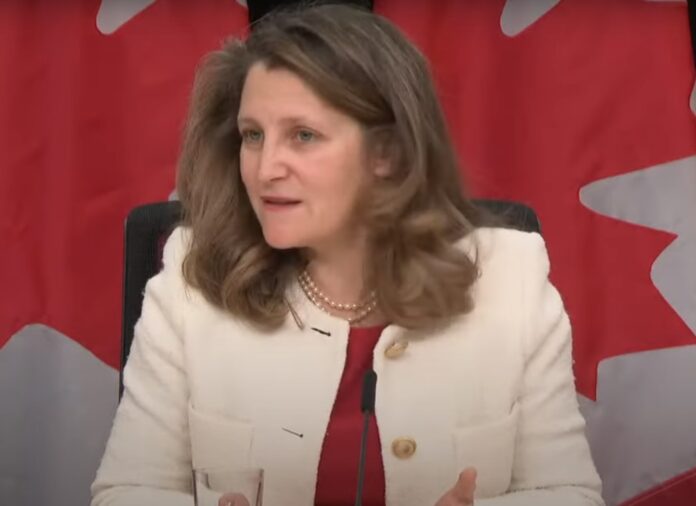The federal government is acknowledging the financial difficulties posed by the current housing market, and has pledged $199 million in new funding to help offset the problem.The funding announcement was made on February 6.
Of the funding, $100 million will be put toward the creation of new emergency homeless shelter spaces for the winter months when sleeping outdoors becomes even less feasible than it is when the weather is mild. The other $99 million will be provided as a boost to the existing Canada Housing Benefit.
The new funding was announced during the pre-budget consultation period for Canada’s 2024 budget, which raised questions regarding the need for urgency.
“We’re doing it now just because the need is great,” Finance Minister Chrystia Freeland told reporters at a press conference on February 6. “I think all of us can see on streets, in parks across the country… people who are really cold, and really, really suffering. And this is Canada. We need to do what we can to be sure that every Canadian has a roof over their head and warm food to eat.”
The Canada Housing Benefit is a federal government initiative that has partnerships with provincial governments across the country. Locally, the aid funding is known as the Canada-Ontario Housing Benefit (COHB). To qualify for the benefit, there are limits to both household income, and the monthly rent amount currently being paid.
Applications for the COHB are processed through the local municipality – North Grenville residents would therefore apply through the office of the United Counties of Leeds and Grenville.
There is little doubt that rent has hit an all time high in Canada, with prices not sustainable even for families that would have been considered well above the poverty line a few short years ago. As of December 2023, the average asking rental price across all of Canada for all types of residential units was $2,178 per month.
Meanwhile, the average household income in Canada in 2023 was reported by Insurdinary.ca to be $6,287 per month. According to the Canada Revenue Agency’s payroll deductions calculator, the resulting net pay (assuming no tax credits other than a basic personal amount) would be $4,655 for the month. Comparing these two averages, it suggests that in the current housing market, renters, on average, are expected to spend about 47% of their total income on rent. However, it has long been recommended by financial experts that no more than 30% of income be spent on rent.
The additional government funding is sure to be welcomed by the countless individuals and families who are struggling to pay for their basic necessities, or those with nowhere to live.
Why is rent so high in Canada? While many factors certainly come into play, the main reported reason for the rent inflation is the current “high interest rate environment” which is driving people away from home ownership and into the rental market. The resulting increase in demand while the general supply of rental housing stays the same drives rental prices up.
Locally, there is always support for those in need. Readers who find themselves in financial hardship are encouraged to reach out to the United Counties of Leeds and Grenville to inquire about current assistance funding available. The House of Lazarus in Mountain also offers advocacy for those in financial crisis. Visit https://hol.community/outreach-programs/ to learn more.

